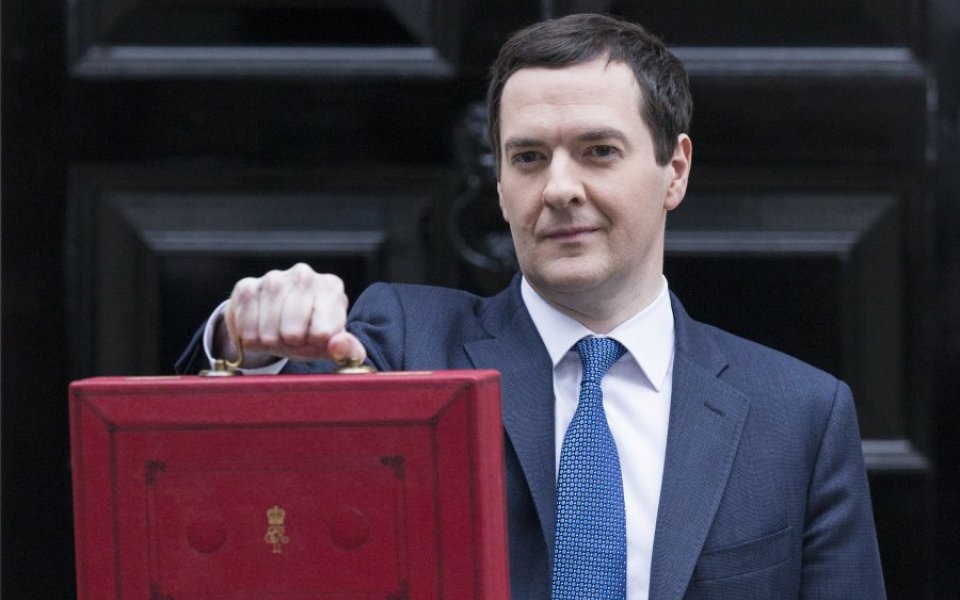Budget 2016 predictions: When is it and the key points Chancellor George Osborne will cover in his speech?

Last year we had three of them. So far we've made it through two months without one, but fear not campers – there's a new Budget in town. This is everything you need to know about this month's fiscal update from the government.
When is the Budget 2016 and how to watch live
Chancellor George Osborne is expected at the dispatch box around 12:30pm, Wednesday 16 March, immediately after Prime Minister's Questions.
You can watch the Budget live on BBC News and Parliament channels or online on BBC iPlayer and Sky News. Besides that, the speech can be listened to on BBC Radio 4 or via livestream on TuneIn radio.
And of course, City A.M. will be providing updates and analysis of all the big announcements as they happen. This is what you might want to look out for.
Pensions changes?
An eight-month Treasury consultation has made big pension reform likely.
The three-tiered system of incremental tax relief of basic-rate (20 per cent), higher-rate (40 per cent) and additional-rate (45 per cent) could be replaced with a single flat rate, with 33 per cent being the oft-quoted middle ground.
Lower earners will benefit from a higher single rate as their pension contributions will be reduced while higher-rate and additional-rate taxpayers will likely see a drop in the amount of tax relief they are entitled to, meaning they will have to pay more to see the same pension contributions they currently enjoy.
Read more: Budget 2016: A spread of tax changes are coming
Tom McPhail, head of pensions research at Hargreaves Lansdown, said the annual allowance is likely to be reduced from £40,000 to as low as £25,000.
“Whether it is the rate of relief, the amount which can be saved or both, I will be amazed if the day after the Budget, higher earners can still enjoy all the tax breaks on pensions available to them today," he said.
Osborne may, alternatively, introduce a pensions Isa, where contributions will receive no tax breaks but money will eventually be withdrawn tax free. However this would be a more complicated way of addressing the issue.
Former pensions minister Steve Webb warned last week that the chancellor plans to drop this £4bn “extra tax bombshell” and get rid of the so-called tax-free lump sum, which would make pensions for new savers more like Isas.
A pensions ISA would see retirement savings change to a system where tax is charged on contributions but not withdrawals, which is the opposite of the current system.
Which taxes are going to be raised?
Fuel duty is one area that could see an increase in next month's Budget, having been frozen for the last four years. The slump in oil prices may make an increase more attractive to the chancellor as the impact on consumers’ pockets will be lower.
But the industry is not so keen. AA president Edmund King told the Express that tax still makes up 73.4 per cent of the price of a litre of petrol, strongly arguing against a rise.
Read more: Prime London house prices weighed down by stamp duty
Spending cuts
George Osborne has already warned of further spending cuts in the Budget and has set himself a target to move the public finances into the black within five years.
"We may need to undertake further reductions," he told the BBC as figures showed the UK economy was smaller than expected.
Last October, the OBR forecast the budget to be in surplus by around £10bn in that financial year.
Lloyds shares
There may be an announcement in the Budget to sell the government's remaining shares in Lloyds Banking Group after the sale was postponed.
The sale of the final chunk of Lloyds shares – which was expected to raise £2bn for Treasury coffers – was delayed due to “turbulent markets” weighing on the share price.
Will there be further changes to buy to let?
It's rumoured that the chancellor could potentially limit tax breaks further or introduce more charges to deter landlords buying homes.
This is on top of the three per cent increase in stamp duty charges that are to be introduced in April having been outlined in a previous Budget.
The policy will affect buy to let landlords but also parents buying property for their children or a couple buying a home together if one of them is already a homeowner. [custom id="135"]